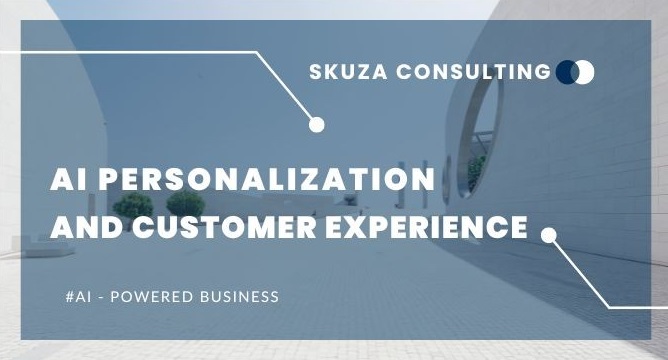Introduction
It’s no secret that artificial intelligence (AI) is rapidly changing the customer experience landscape. With AI, businesses can now personalize the customer experience in ways that were previously impossible.
This transformation is a major shift from the traditional one-size-fits-all approach to customer experience. In the past, businesses would create a single customer experience that they would then try to apply to everyone. This was often ineffective, as not every customer is the same.
Starbucks is playing with the idea of personalizing a customer’s drink based on their preferences, the weather, the season, and a variety of other factors. AI is adaptable and can be used to boost sales in virtually every industry.
With AI, businesses can now create a unique customer experience for each individual. This personalization is made possible by the massive amount of data that AI can process. By understanding a customer’s preferences, behaviors, and needs, AI can create a custom customer experience that is far more effective than a one-size-fits-all approach. As seen in the graph below, personalization with AI has caused an increase in digital ad sales over the past couple of years. This article will discuss how AI personalization in regards to product personalization and its benefits.
What is AI Personalization?
To understand AI personalization, it is first important to understand what artificial intelligence is. Artificial intelligence is a branch of computer science that deals with the creation of intelligent machines that work and react like humans.
There are three different types of AI:
– Reactive machines: These are the simplest form of AI and can only react to the environment. They cannot form memories or learn from past experiences.
– Limited memory: These AI systems can remember and use past experiences to make decisions. This allows them to improve over time.
– General artificial intelligence: These are the most advanced form of AI and can reason, problem-solve, and learn.
AI personalization is the process of using artificial intelligence to personalize the customer experience. This can be done in a number of ways, such as product recommendations, targeted ads, and custom customer support.
One of the most common ways that AI is used to personalize the customer experience is through product recommendations. By understanding a customer’s preferences, behaviors, and needs, AI can recommend products that they are more likely to be interested in. This is similar to how Amazon and Netflix use AI to recommend products and movies to their customers.
Another common way that AI is used to personalize the customer experience is through targeted ads. Using the data that they have collected, businesses can target ads to customers that are more likely to be interested in them. This is a much more effective way of advertising than the traditional method of spraying and praying.
AI can also be used to provide custom customer support. By understanding a customer’s issue, AI can provide a personalized solution that is far more effective than a generic customer support template.
How Does AI Personalization Reduce Churn?
Product personalization with artificial intelligence has been shown to reduce customer churn. Churn is the percentage of customers that stop using a product or service within a given time period.
There are a number of reasons why AI personalization can reduce customer churn.
– Improved customer experience: As mentioned before, AI personalization can improve the customer experience by providing a more personalized and targeted experience. This can lead to increased customer satisfaction and loyalty.
– Increased engagement: AI personalization can also increase customer engagement by recommending products that they are more likely to be interested in. This keeps customers engaged with the product or service and reduces the chances of them churning.
– Reduced support costs: AI personalization can also reduce the cost of customer support. By providing a more personalized and targeted experience, AI can reduce the number of support requests. This leads to lower support costs and increased profitability.
As seen in the graph below, weak relationship building and poor customer service are key causes of churn. AI personalization reduces these causes of churn by remembering customer preferences to build relationships and through online chatbots that improve customer service.
The Future of AI Personalization
Personalization and AI are two of the most talked-about topics in the tech world. And for a good reason: they have the potential to radically change the way we live, work, and interact with the world. Personalization is all about making technology more personal, more relevant, and more useful to each individual user. AI, on the other hand, is about making machines smarter – giving them the ability to learn, reason, and make decisions on their own. Together, personalization and AI have the potential to change every aspect of our lives. Here are just a few examples of how personalization and AI will shape the future:
– personalization will make our devices more intuitive and easier to use. Services like Netflix and Amazon already personalize our content recommendations based on our past behavior. In the future, this type of personalization will become even more sophisticated, tailoring everything from the ads we see to the news we read to the products we buy.
– AI will help us make better decisions. Personal assistants like Siri and Alexa are already starting to do this by understanding our preferences and providing us with information and recommendations accordingly. In the future, AI will become even better at helping us make decisions, whether it’s choosing what to eat for dinner or which stock to invest in.
– personalization and AI will enable new business models. Personalization and AI will create opportunities for entirely new types of businesses – as well as new ways for existing businesses to compete. For example, a company that specializes in personal data management could use AI to help people keep track of their finances or stay healthy. Or an online retailer could use personalization to offer a truly personalized shopping experience.
These are just some of the ways personalization and AI will shape the future. As these technologies continue to evolve, they will have an increasingly profound impact on our lives – transforming the way we live, work, and interact with the world around us.
Conclusion
AI personalization has the potential to radically improve the customer experience and reduce customer churn. By providing a more personalized and targeted experience, AI can increase customer satisfaction, engagement, and loyalty. In the future, personalization and AI will continue to shape the way we live, work, and interact with the world.
References

